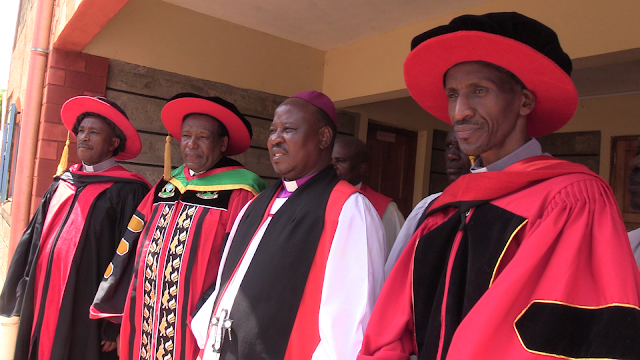State urged to protect donkeys
 |
| A procession to mark National Donkey Day in Mwea town |
Donkey owners in Kirinyaga and Embu Counties have expressed fears that they risk losing their source of livelihood, unless the government curbs theft of donkeys and stops licensing of more slaughterhouses.
They said the population of donkeys was on a steady decline as the demand for its meat and skin had risen to supply the abattoirs, while theft of donkeys at night was frequent.
Speaking during National Donkey Celebrations for the region in Mwea town, Kirinyaga County, the owners said the donkeys decimated through slaughtering could not be easily replenished as females produce just one foal a year and are prone to miscarriages under stressful conditions.
Mwea donkey owners association chairman Cyrus Gitonga said a recent survey found the number of donkeys had declined from 4000 to 2500 in Mwea in the last two years.
The grim statistics are not any different nationally as according to a Kenya Network for Dissemination of Agricultural Technologies (Kendat) survey, the donkey population last year stood at 900,000 down from 1.8 million in 1999.
Kendat, which through its Heshimu Punda Programme organised the celebrations, cautioned against plans to license another donkey abattoir in Kithyoko, Machakos County, as that would reduce the donkey population further.
The celebrations, also held in Meru, Machakos, Kiambu, Nairobi and Nyandarua counties, saw riders using decorated donkeys hold a colourful procession along the streets of Mwea town to create awareness on the need to protect and safeguard the welfare of the beasts of burden.
Kendat also offered free clinics where wounded donkeys were treated, their hooves trimmed, among other services.
Donkey owners called on police to beef up security after they lost tens of donkeys to thieves in the last one year.
“Several times we have woken up to find our donkeys slaughtered and their bones strewn in the bushes. We fear the uninspected meat ends up with unscrupulous butchers and is sold to unsuspecting customers disguised as beef,” said Gitonga.
James Gachoki said he was almost pushed out of the donkey transportation business after his three donkeys were stolen from their enclosure on January, the same night his neighbour also lost two donkeys.
“Donkeys are a source of livelihood for many families in this area and contributes significantly to the booming economy of Mwea. They hull bags of rice from rice fields, where other modes of transport are inconvenient, to the market. More than 1000 people are involved in donkey transport. The government should safeguard our jobs,” said Gachoki.
According to donkey owner, Florence Wainaina, the reduction of the animals would be a burden to women who would then have to haul grains, firewood and water on their backs.



Comments
Post a Comment